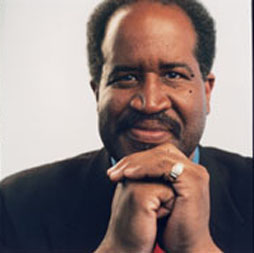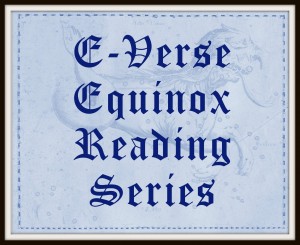Not to be missed! Please share with friends in Philadelphia, and mark your calendars.
E-Verse Equinox Reading Series, Featuring Afaa Michael Weaver, George Green, and Bojan Louis
Thursday, March 22nd, 7PM
Robin’s Books/Moonstone Arts Center, upstairs from the old Robin’s Books
(Walk up the stairs to the bookstore)
110 South 13th Street
Philadelphia, PA 19107
(215) 735-9598
 Henry Louis Gates of Harvard University has remarked that Afaa Michael Weaver “is one of the most significant poets writing today.” Ed Ochester sees him as the “African American successor to Walt Whitman, and one of the finest American poets of his time.” A recipient of NEA and Pew fellowships, as well as a Pushcart prize, Weaver has taught university for twenty-five years and currently holds an endowed chair at Simmons College in Boston. His twelfth collection of poetry, The Government of Nature, will appear in 2013.
Henry Louis Gates of Harvard University has remarked that Afaa Michael Weaver “is one of the most significant poets writing today.” Ed Ochester sees him as the “African American successor to Walt Whitman, and one of the finest American poets of his time.” A recipient of NEA and Pew fellowships, as well as a Pushcart prize, Weaver has taught university for twenty-five years and currently holds an endowed chair at Simmons College in Boston. His twelfth collection of poetry, The Government of Nature, will appear in 2013.
“A Playwright’s Breakfast at Big Nick’s” by Afaa Michael Weaver
It is thick here, the rise and fall of sidewalks,
fruit lounging in the space where we walk,
apples, oranges, melons, bananas, lights
from Christmas marking spots where clerks
gaze over the piles to catch hands slipping food
into pockets in one smooth swipe, and the moon
the accomplice, lending a shadow where no one
expects the moon to come to the aid of thieves.
Once friends made me laugh at the word
jur-is-dic-tion—sliding it until it slipped, pulling
it like a banana to be elongated until it is squishy,
and the other word we mined with word games—
e-lon-gat-ed—wondering why the n_g space had to be
separated—why the gate had to have its hinge taken
away, the “e” pushed to the “d” to finish things
in the thin elegance of length, like the trains
turning into streams of sucking air beneath us.
We go back into the sound of the bellowing
made when dumpsters are filled with the junk
of taking apart lives inside these old apartments
on the west side, gutted is the word, as if guts
can walk the space from old New York to this,
as if the oldness was greatness, and who is to say
it was not Rose McClendon teaching a young
Ruby Dee the blessing of what it is for actors to eat
when nothing happens, the stage dull and dumb.
A sign in front of me says—absolutely no laptops—
so I use the phone that does laptop work but fits itself
into my hand, a prompter’s box, heavy and squat.
There is that word, squat. Squat will not be squished
into. Only words waiting to jump into a life
are fit for scripts. Only breath keeps a city alive.
Original appearance in Connotations.
 George Green is a second-generation New York School poet. He holds an MFA in poetry from the New School and currently teaches at Lehman College, CUNY, in the Bronx. His poems have appeared in the anthologies Poetry 180, and 180 More, and The Best American Poetry 2005 and 2008. His book Lord Byron’s Foot, winner of the New Criterion Poetry Prize, is forthcoming this fall from St. Augustine’s Press.
George Green is a second-generation New York School poet. He holds an MFA in poetry from the New School and currently teaches at Lehman College, CUNY, in the Bronx. His poems have appeared in the anthologies Poetry 180, and 180 More, and The Best American Poetry 2005 and 2008. His book Lord Byron’s Foot, winner of the New Criterion Poetry Prize, is forthcoming this fall from St. Augustine’s Press.
“Rose Poe” by George Green
Rose Poe was homeless after Richmond fell,
abandoned by the millionaire MacKenzies,
whose ward she’d been for over fifty years.
She spent her days down at the railroad depot
trying to sell some faded photographs
of her unhappy brother, Edgar Allan,
now long deceased, the author of “The Raven.”
His signature was forged across the portraits
in Rose’s perfect hand. She had for years
taught penmanship to Richmond’s “finest daughters”
at the MacKenzies’ girls’ academy.
She played piano, also, and gave lessons,
but many thought that she was rather dim,
including Edgar. She would sit up front
when Edgar read his poems, or gave a talk,
but then he’d tease her cruelly afterwards,
mocking the way she dressed and wore her hair
and remonstrating snappishly with her.
Her benefactors, too, could be unkind.
She had her room, her place at tea and table,
but they ignored her when she spoke, forgetting
at times, to introduce her to their guests.
She was a small and wren-like creature, Rose,
and she’d lost all her teeth in middle age,
and this embarrassed her so keenly, that,
increasingly, she kept herself apart.
* * *
When Lee retreated west to Appomattox
that spring, Rose Poe was left to stumble down
deserted boulevards in neighborhoods
that fires and explosions had destroyed,
places that she no longer recognized
they were so rubble-strewn.
She couldn’t sleep,
not in the overcrowded rectories,
and so she skulked around the homeless camps
alone, avoiding other indigents
(whom she disdained as her inferiors)
and always on the lookout for a place
where she’d feel safe.
Afraid of scavengers,
of convicts, dogs, deserters, drunks, and slaves,
now freed, she hid herself in alleyways,
which fear would people with a million phantoms.
So, helpless and forsaken, terrified
and hiding like a cat, Rose passed her nights,
a vagrant pauper in the conquered South.
* * *
Many of her aristocratic students
were desperate, too, and busy writing letters
to friends and relatives, writing in such
a lovely hand (for Rose had taught them well)
letters that pled for hidden jewels and heirlooms,
anything they could possibly sell or barter
to put some staples into empty cupboards.
For some were widows now with hungry children,
and some had husbands home with crippling wounds,
or husbands home, irascible and idle,
whittling sticks and moping in their yards.
* * *
On Sundays after church Rose would accost
acquaintances and beg them, frantically,
to let her come with them and sit a spell.
Some decent Christians took their turns relenting,
though usually her visits were a trial.
Rose strove so hard to please, reciting verse,
and, if they were unfortunate enough
to have a Steinway in their parlor, well,
Rose Poe could bang out hymns all afternoon.
Eventually, of course, they’d make her stop,
but then she’d pray enthusiastically,
not giving them a chance to interrupt,
chanting her supplications, crazed like some
mysteriarch who’d fallen from the moon
and landed accidently in Virginia,
an unacknowledged augeress, Rose Poe,
the soul or emblem of the ruined town.
Original appearance in The New Criterion, June 2011.
 Bojan Louis is a member of the Navajo Nation. His poems have been published in The Kenyon Review, Platte Valley Review, and Hinchas de Poesía; his fiction in Alaska Quarterly Review. He is working as a service electrician in the Phoenix metropolitan area while completing a collection of poetry and another of short fiction. He was recently a resident at The MacDowell Colony.
Bojan Louis is a member of the Navajo Nation. His poems have been published in The Kenyon Review, Platte Valley Review, and Hinchas de Poesía; his fiction in Alaska Quarterly Review. He is working as a service electrician in the Phoenix metropolitan area while completing a collection of poetry and another of short fiction. He was recently a resident at The MacDowell Colony.
“Grounding” by Bojan Louis
Crespúculo,
una serpiente de polvo
—vans of la migra—
summoned by contratistas
cobardes who anticipate
a crack, irresolute
of its path.
Sin necesidad de herramientas
curb-plucked workers
walked barefoot
through cemento frió
and floated suave
the curing surface.
Now they sit encadenado
y se preguntan
if they’ll receive water
para lavar la roca
hardening around their feet.
Originally in Hinchas de Poesia.




No Comments